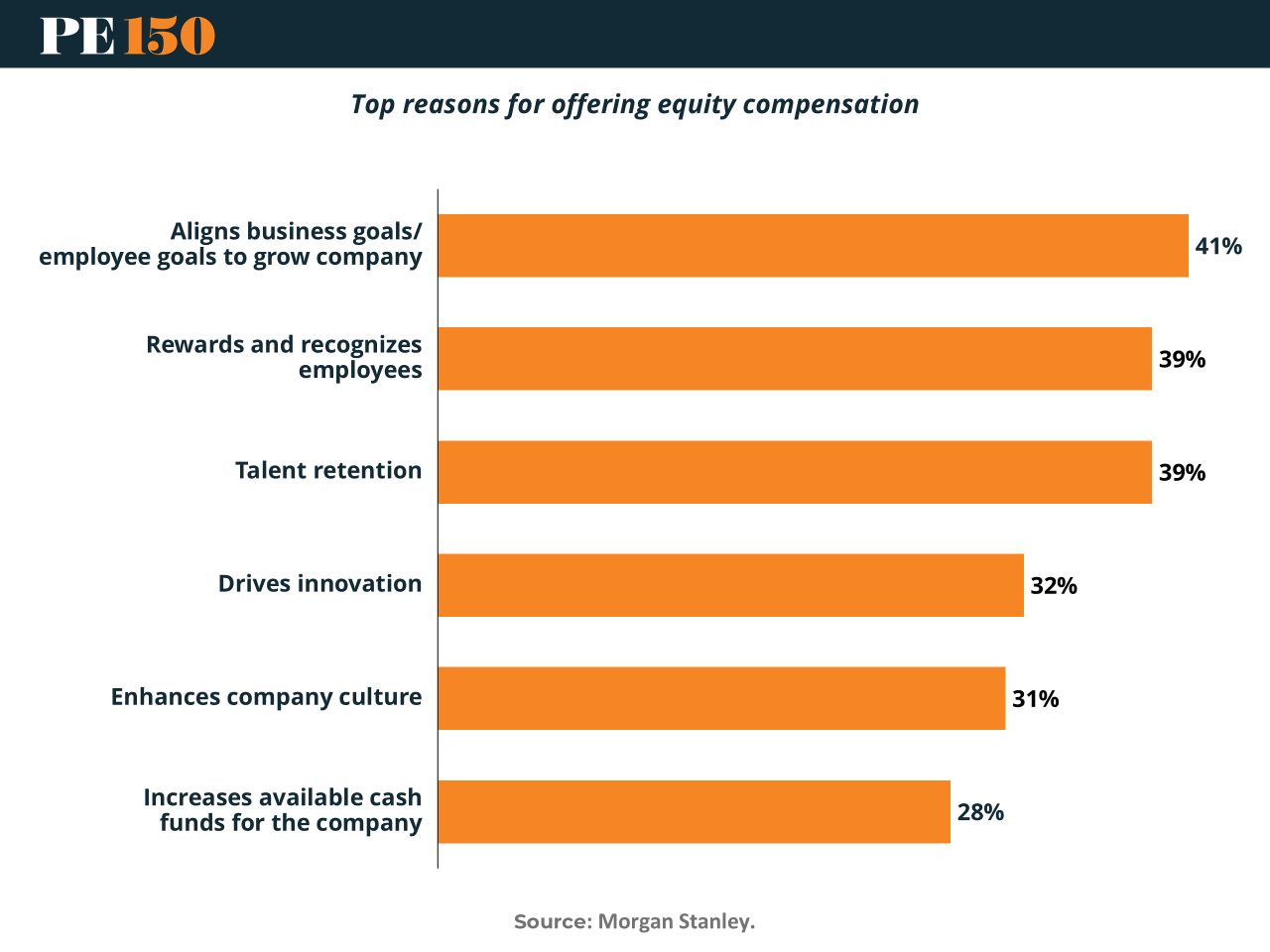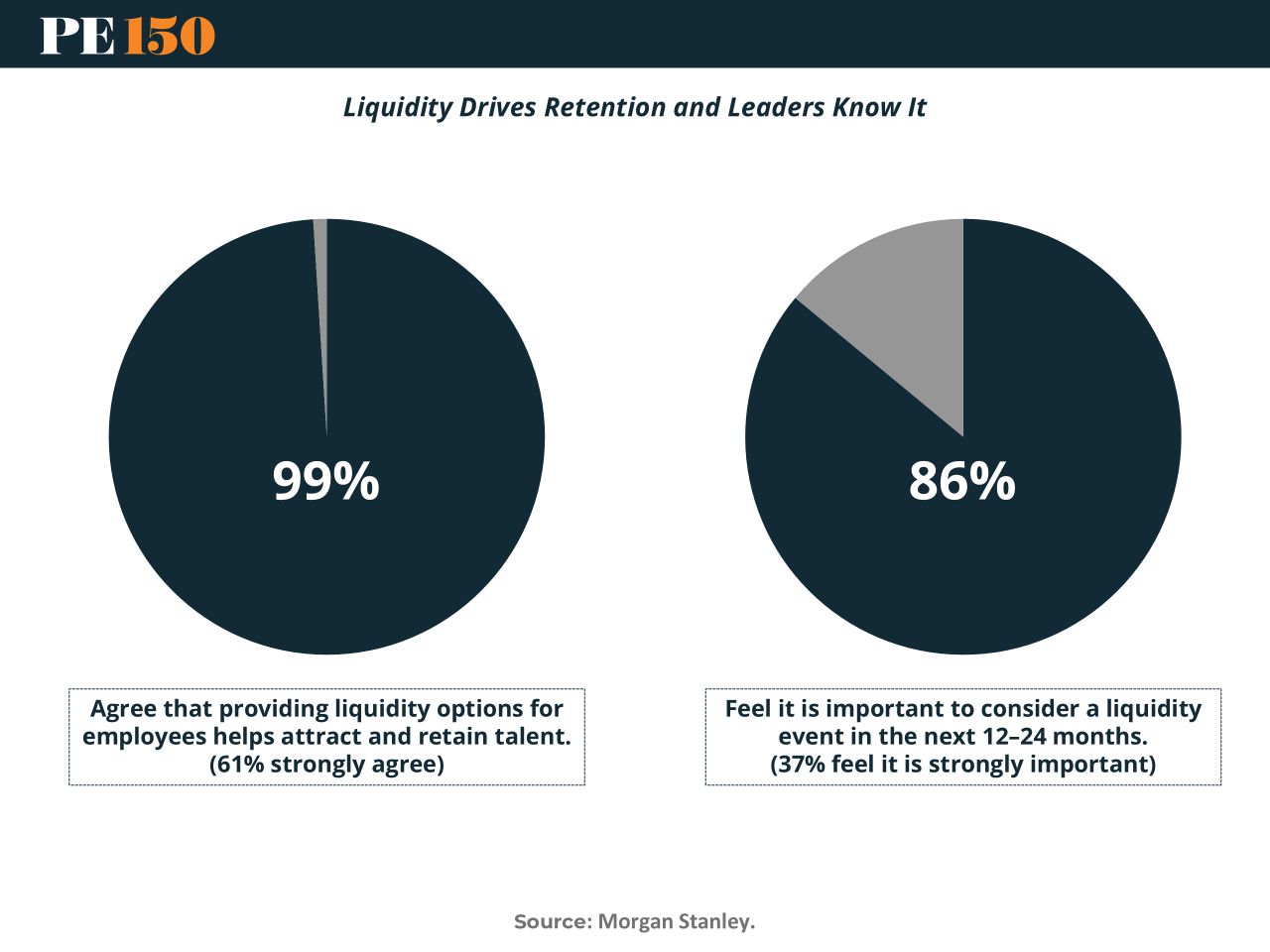- PE 150
- Posts
- Equity Is Powerful—Liquidity Makes It Real
Equity Is Powerful—Liquidity Makes It Real
Equity compensation continues to be a competitive differentiator, especially when paired with liquidity opportunities.

As private companies navigate a challenging capital environment, equity compensation has emerged as one of the most effective tools to attract, retain, and motivate talent—particularly when combined with opportunities for liquidity. While traditional financial incentives like salaries and bonuses remain foundational, equity offers something different: alignment with company performance, a sense of ownership, and the potential for long-term wealth creation.
According to a recent Morgan Stanley survey of private company decision-makers, the top reasons for offering equity compensation go far beyond financial reward.

At the top of the list:
41% of companies cite goal alignment—linking employee incentives with business growth—as the primary reason for offering equity.
39% see it as a tool to recognize contributions and retain top talent.
Other benefits include driving innovation (32%) and enhancing company culture (31%).
But here's the key point: none of these benefits are fully realized without liquidity.
Equity Without Liquidity Is Just a Promise
While granting stock or options is powerful, the real impact comes when employees can access the value they’ve helped create. When equity remains illiquid—locked away in paper value—its motivational power fades over time. That’s why more companies are building planned liquidity events into their equity strategies, through mechanisms like tender offers, secondary transactions, or partial buybacks.

The shift is quantifiable:
99% of equity compensation decision-makers agree that providing liquidity options is critical for talent attraction and retention—61% strongly agree.
86% of respondents believe it’s important to plan a liquidity event within the next 12–24 months—underscoring how essential liquidity has become to equity comp strategies.
Why This Matters Now
As exit markets remain constrained and IPO timelines stretch longer, private companies are under pressure to deliver liquidity internally. For founders and boards, the challenge is twofold: maintain competitive compensation in a tight hiring market, and keep employees motivated despite uncertain macro conditions.
Liquidity is the bridge. When employees are able to convert their equity into cash—without leaving the company or waiting for an acquisition—it reinforces long-term commitment, reduces attrition, and encourages performance. It also signals company maturity and financial confidence.
For PE sponsors and growth investors, this trend opens up new strategic levers:
Structured secondary deals offer a way to provide liquidity without disrupting cap tables.
Partial liquidity events can reduce pressure on exits while improving team morale.
NAV-based lending and equity recaps are becoming viable options to manage internal liquidity.
The Bottom Line
Equity compensation is no longer just about ownership—it’s about access.
Giving employees a stake in the company’s upside is only half the equation; the other half is ensuring they can realize that value. As more firms prioritize liquidity events and secondary options, equity becomes not just a retention tool, but a true engine for stability and growth.